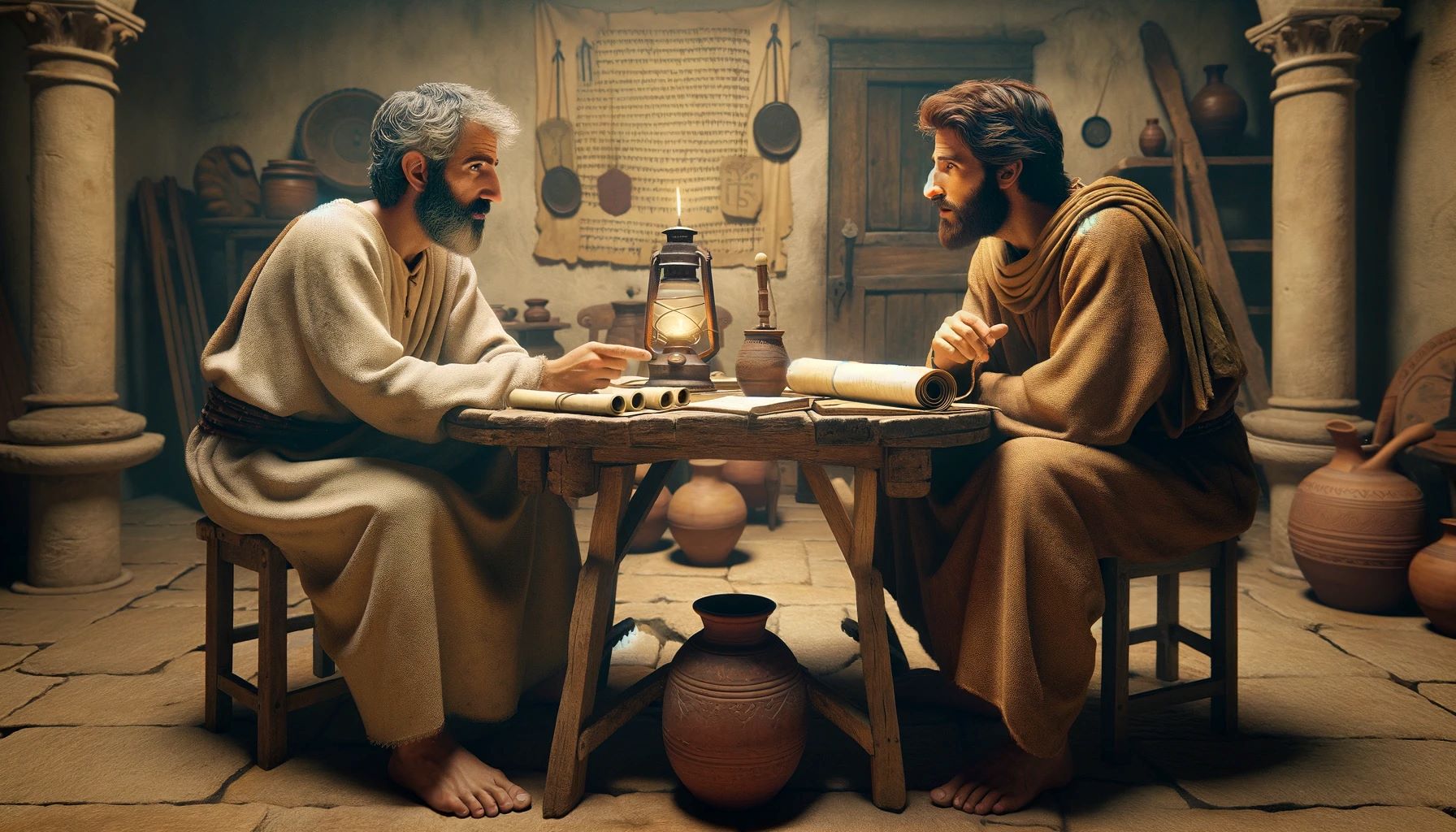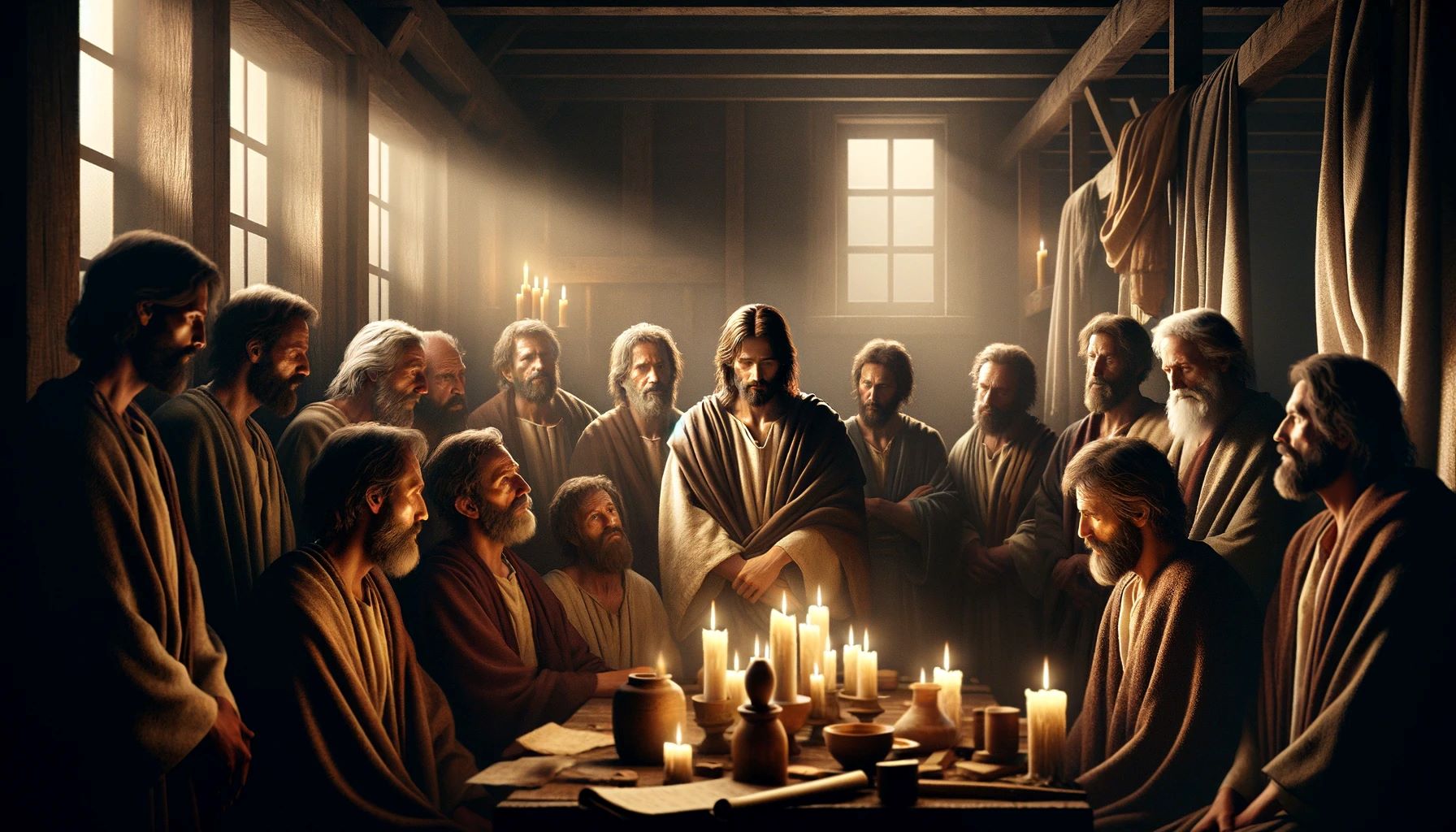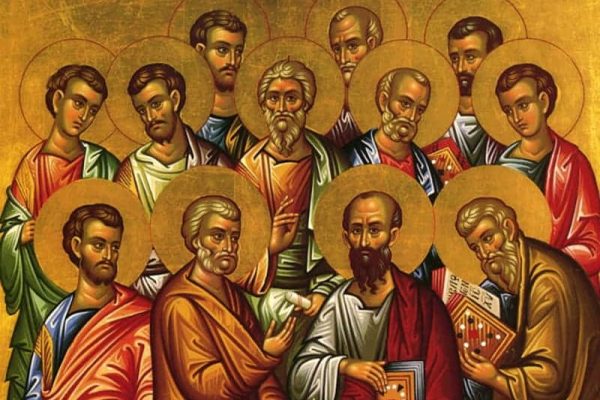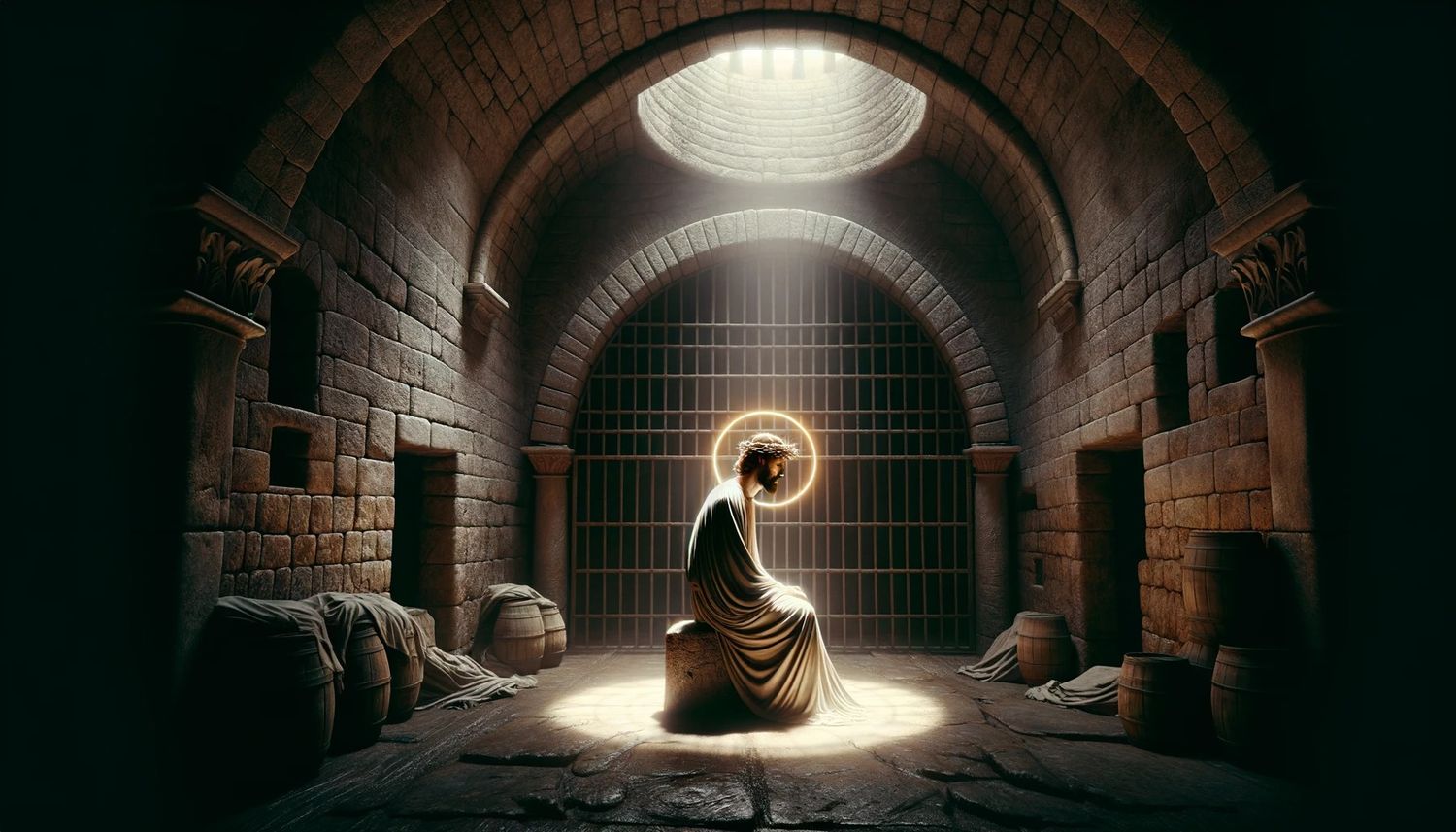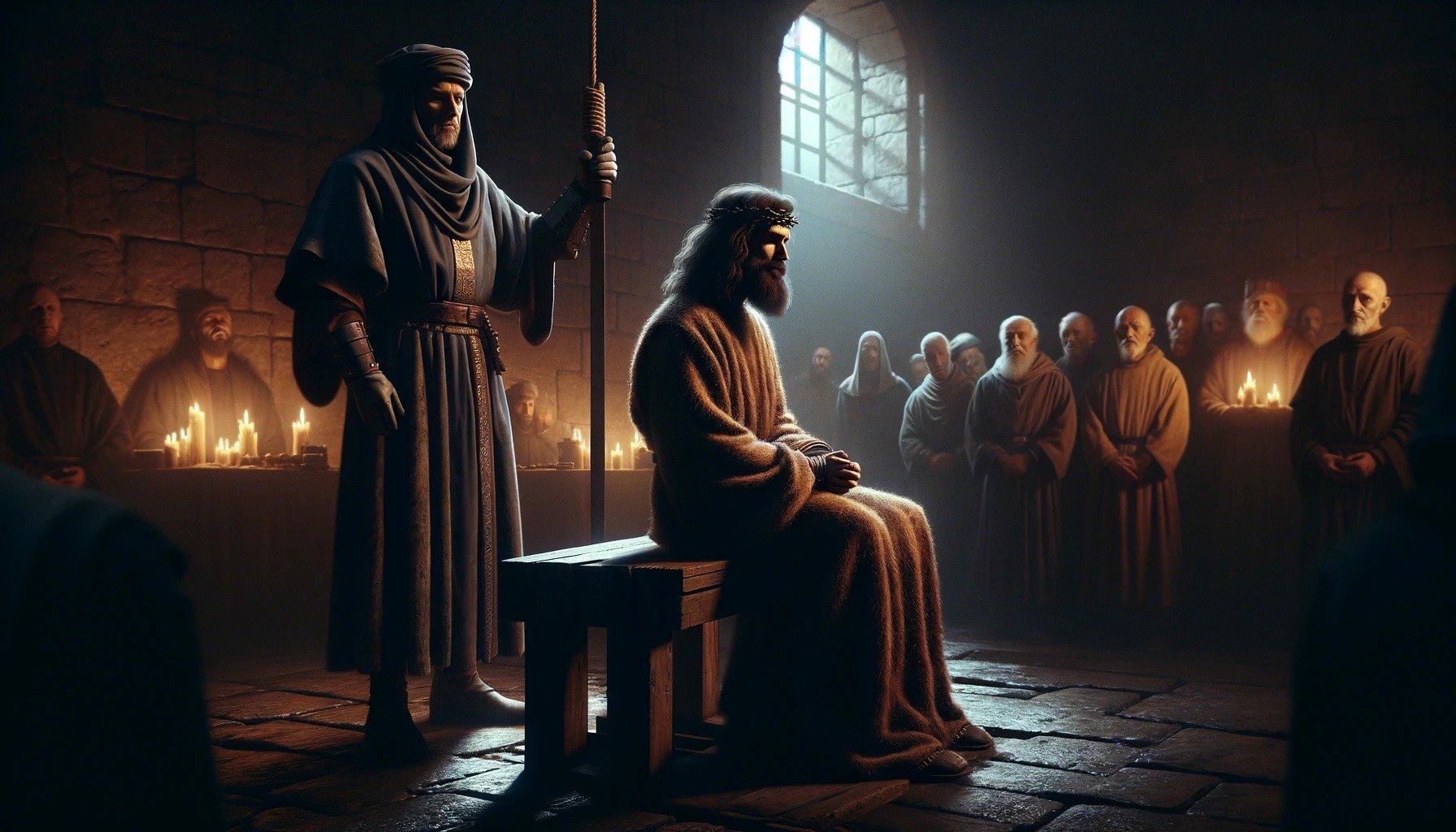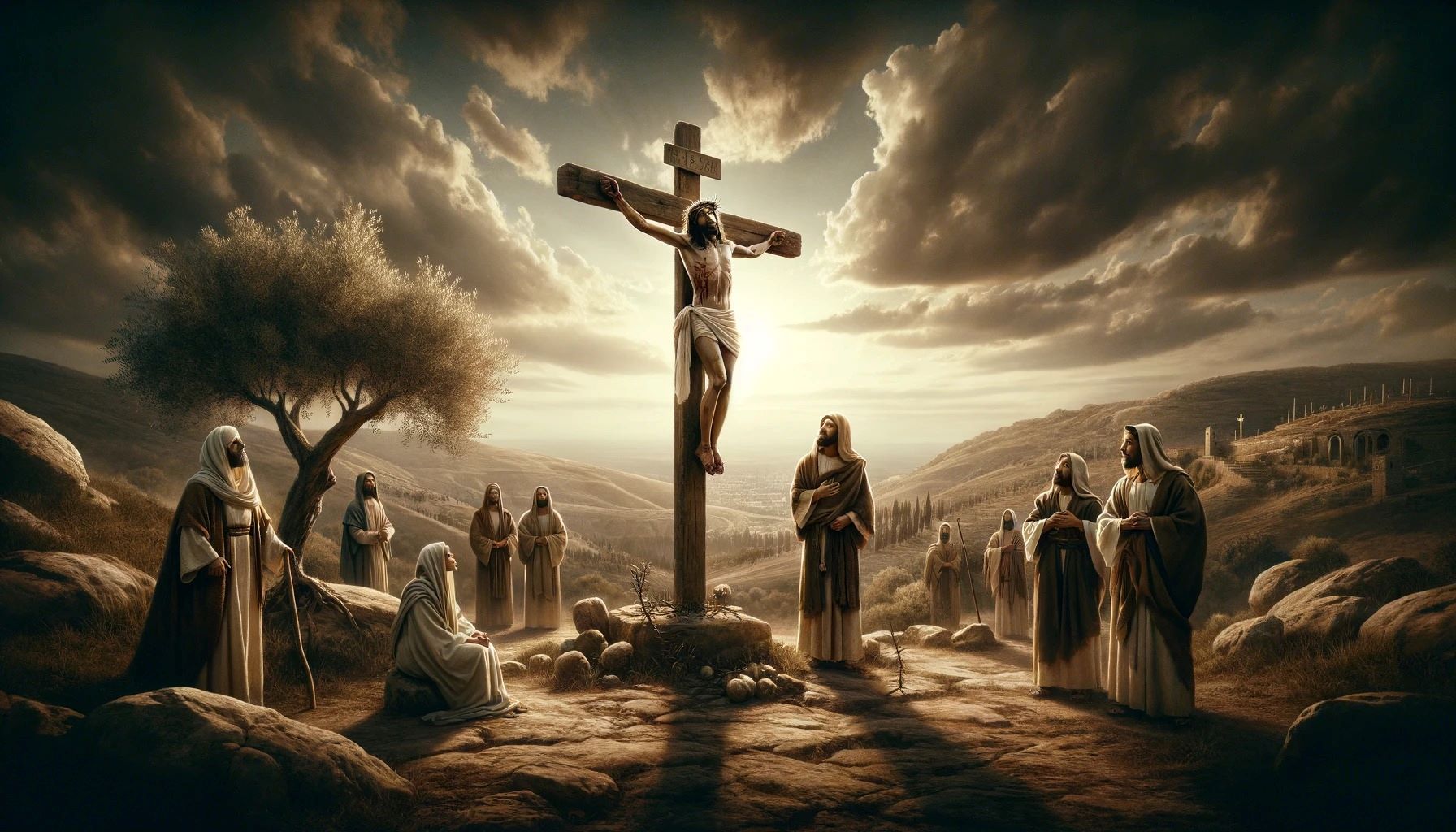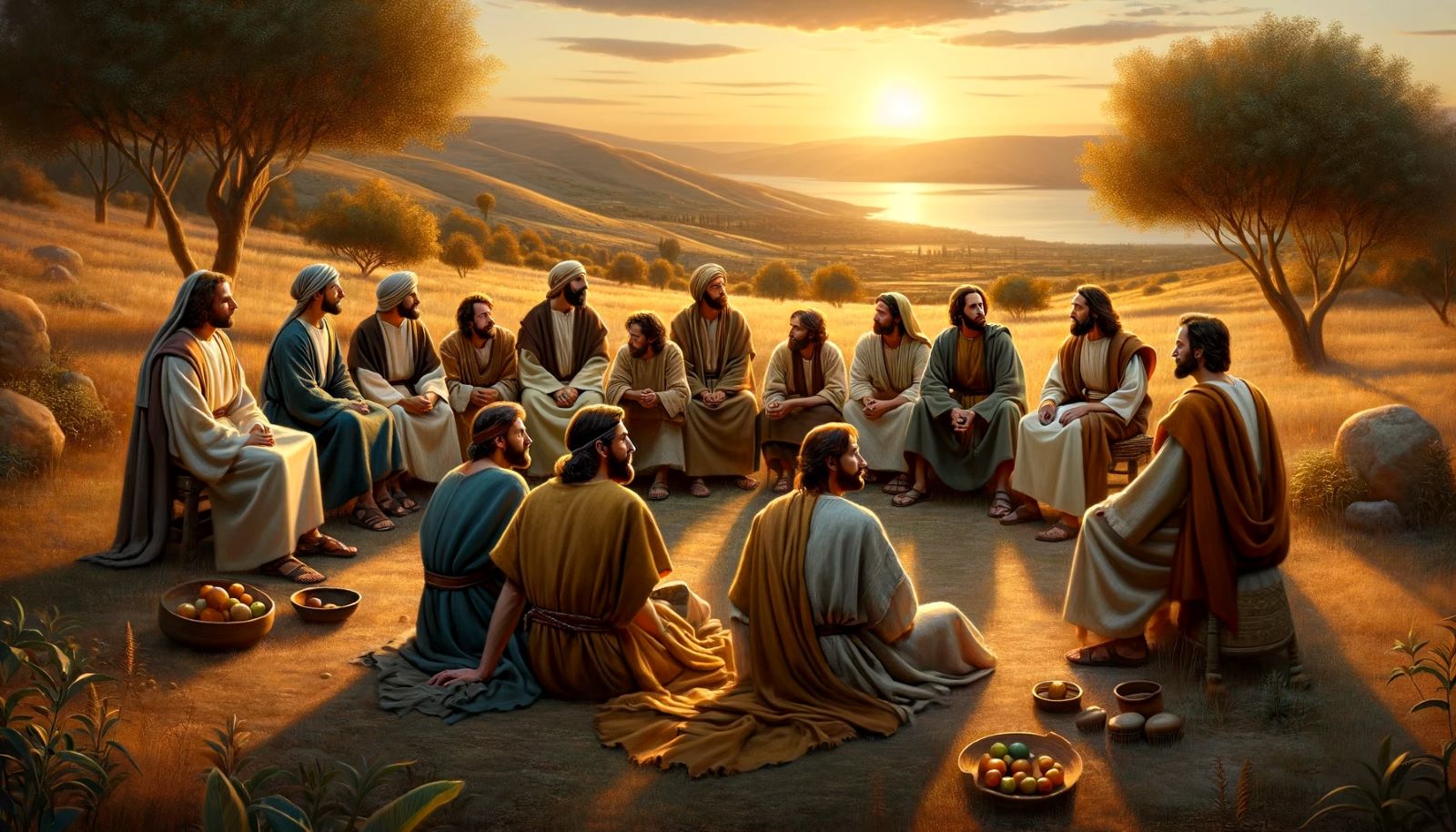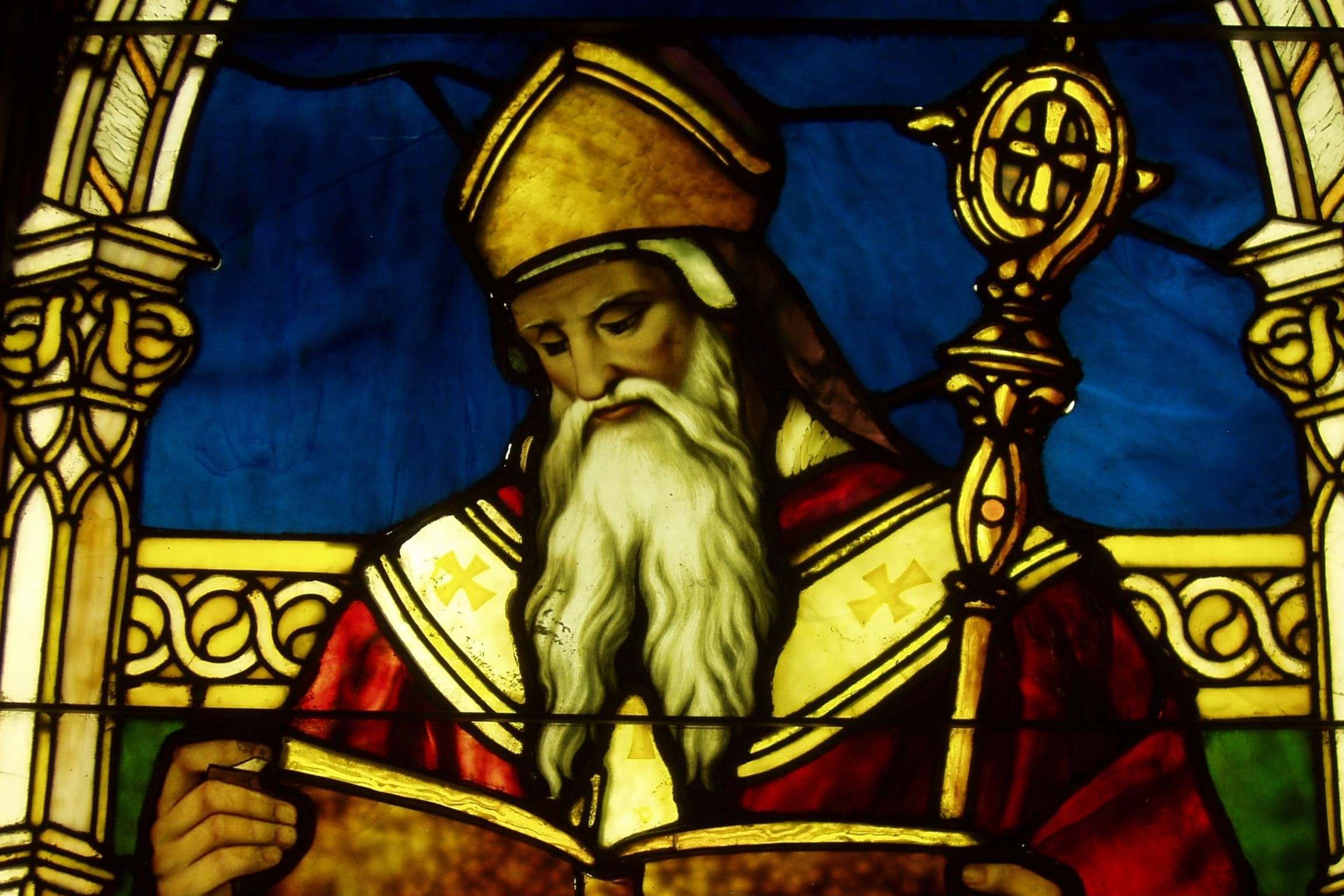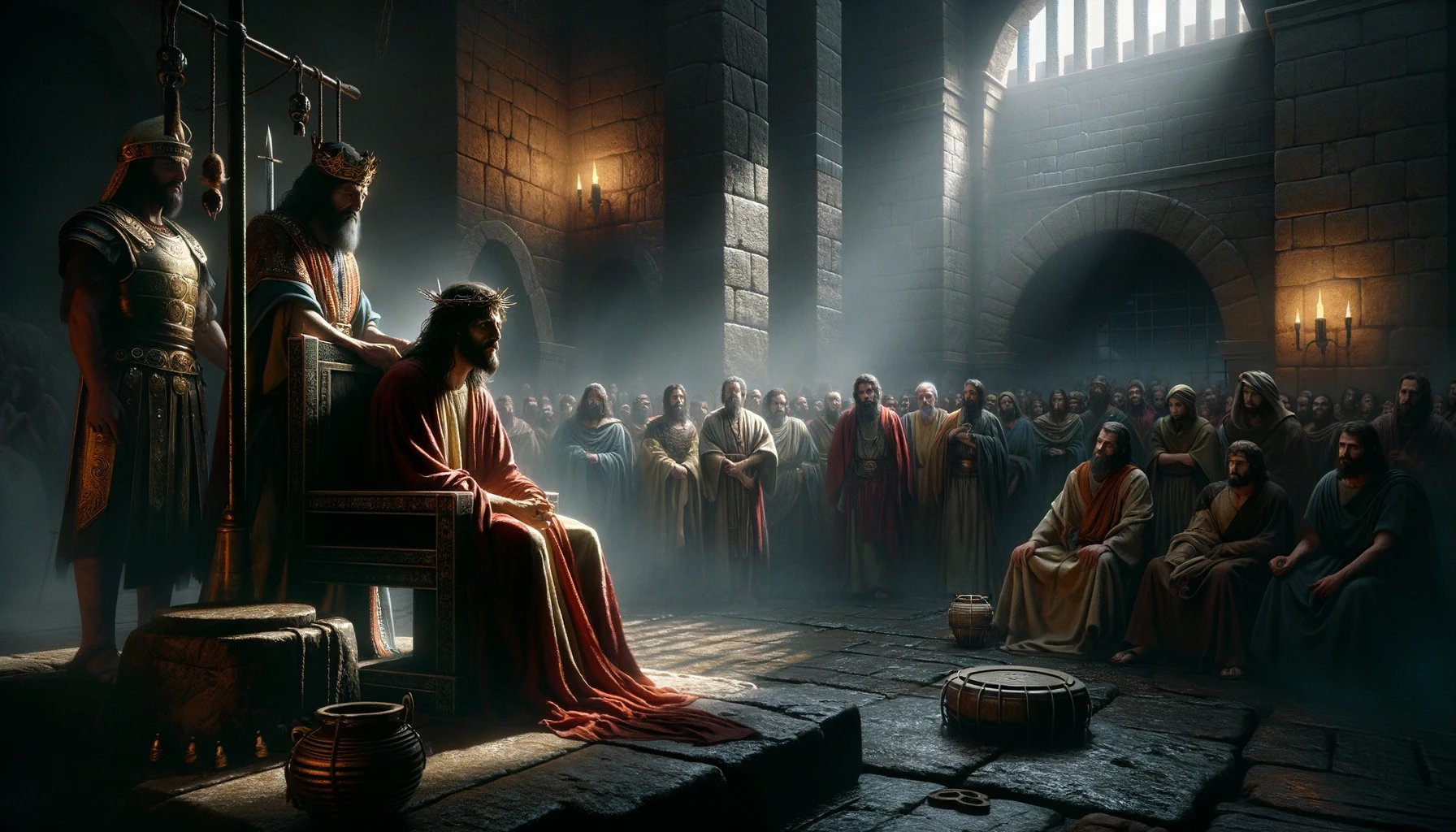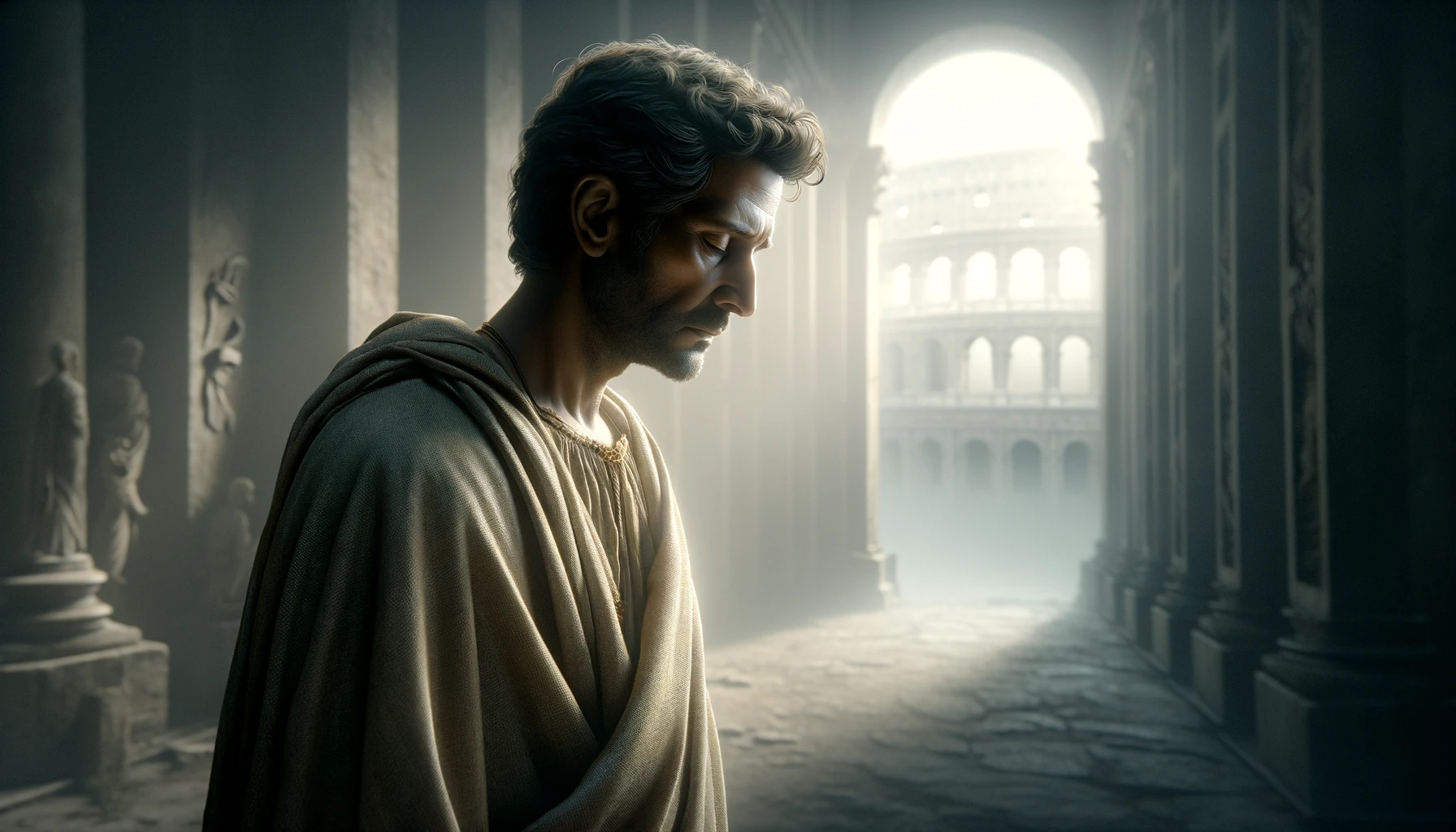Home>Christian Resources>Why And How Did Paul The Apostle Die?
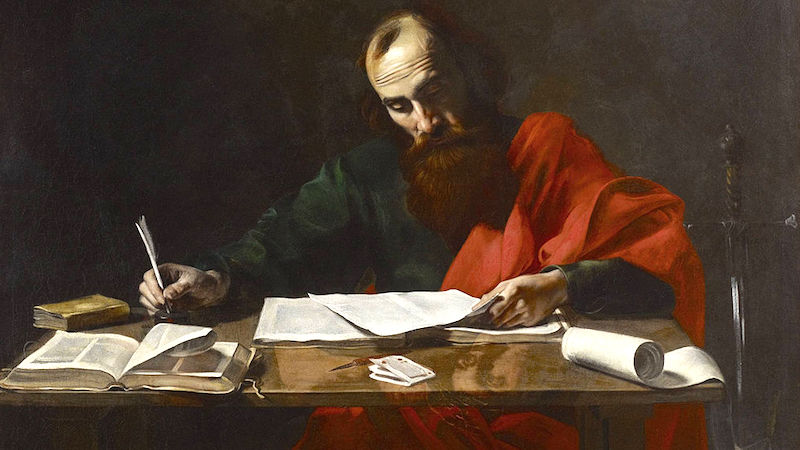

Christian Resources
Why And How Did Paul The Apostle Die?
Modified: January 9, 2024
Ericka Andersen, an editor at Christian.net, expertly merges digital strategy with content creation, focusing on faith and societal issues. Her communication skills enhance the platform's engaging narratives, fostering meaningful dialogue on belief's impact on society.
How did Paul The Apostle Die? Learn the martyr death of one of the greatest apostles and how his life and works made an impact on our faith today.
(Many of the links in this article redirect to a specific reviewed product. Your purchase of these products through affiliate links helps to generate commission for Christian.net, at no extra cost. Learn more)
One of the greatest known religious leaders, Apostle Paul, has played a huge significance in the foundation of Christianity. Most of us are familiar with him and his journey on how he became a follower of Jesus Christ after persecuting a lot of Christians. An interesting fact about the Apostle Paul is that of the 27 books in the New Testament, 13 books are accredited to him. From his life and works, we can learn and find inspiration in which we can apply to our spiritual journey. Yet, have you ever wondered what happened to him in the end? How did Paul the Apostle die?
His death wasn’t explicitly stated in the Bible. But some historical accounts give us information on how did Paul the Apostle die. Historians also debate about the exact date or manner in which Paul died, but they collectively agree that his death is a martyr death. And to help you learn more about his life and death, here is the information you need to know.
Who is Paul the Apostle?
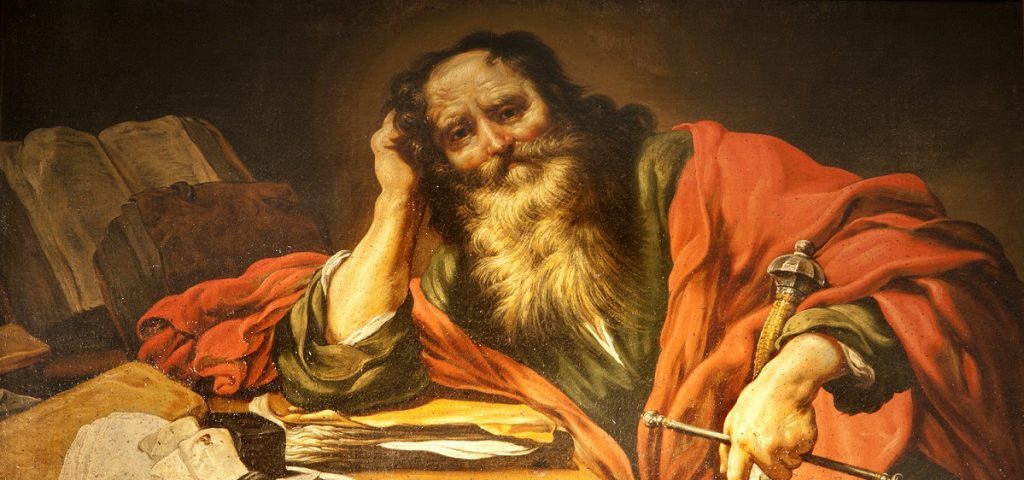
Before we explain how did Paul the Apostle die, we have to know and understand first who he is. The Scripture gives us detailed information about his life, conversion, and ministry.
Born in 4 BCE Saint Paul the Apostle, original name Saul of Tarsus, was a Greek-speaking Jew from Asia Minor. During the time of Paul’s adulthood, his birthplace, Tarsus (now in Turkey), a major city in Cilicia, became part of the Roman province of Syria. Meanwhile, Damascus and Antioch, two of the main cities of Syria, played an important part in his life and letters. Aside from his missionary journey to share the gospel, thirteen books in the New Testament are attributed to him. Take note, the Book of Acts is a book about the acts of the Apostles and in it, deals with many of Paul’s life and works.
Read more: How Did The Apostles Die ?
Apostle Paul’s Conversion

Before Paul became a Christian, he was a member of the Pharisees, a religious party that emerged during the later Second Temple period. He was a strict Pharisee, educated at the feet of Gamaliel. He was also present at and consented to the death of Stephen, a Christian martyr. Not long after that, Paul then began a campaign to persecute Christians. It involved traveling from synagogue to synagogue, urging the punishment of Jews who accepted Jesus Christ as the messiah.
In the book of Acts, however, everything in Paul’s life changed. Paul encountered a blinding bright light on his way to Damascus (Acts 9). He fell to the ground and heard Jesus speak to him. According to Galatians 1:16, God revealed his Son, Jesus, to him. And in 1 Corinthians 9:1, Paul states that he saw the Lord. After his encounter, Paul was led by the hand, blind, to Damascus, where he met a Christian named Ananias (Acts 9:10). He was cured of his blindness, believed in Jesus, and was baptized.
His Missionary Journey
How did Paul the Apostle die? Before we discuss this subject, it is also important for us to know the things he did for Christianity. So, here’s a quick summary of his journey as he shared the gospel the multitudes of people.
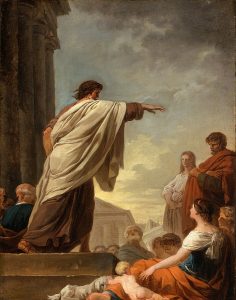
First Missionary Journey
Following the revelation, which convinced him that God indeed chose Jesus as the Messiah, he went to Arabia. Then, he returned to Damascus. And three years later, he went to Jerusalem, where two important events for his future occurred. First, he met Barnabas, a fellow believer, and his future companion. Then, he saw a vision in the temple that commanded him to take the gospel to the gentiles.
While in Antioch, both Paul and Barnabas clearly understood their calling to the Lord’s service. They went to Cyprus, where they met two men. He preached to Sergius Paulus, a Roman deputy who believed the gospel, despite him getting hindered by Barjesus. Both evangelists then continued to Perga, Pisidian where Paul delivered his first evangelistic sermon to the Jews.
They then traveled to Iconium and Lystra – all cities of Asia Minor. While they were in Lystra, Paul healed a man who was crippled since birth, which led to the entire city to almost worship him, thinking Barnabas was Zeus and Paul was Hermes. However, they persuaded the city to believe they were just mortal men; and when the Jews arrived from Iconium, they convinced the city dwellers to stone Paul and Barnabus, leaving them out of the city for dead. But Paul and Barnabus didn’t die. Instead, they recovered and both Paul and Barnabas returned to Syrian Antioch.
Second Missionary Journey
The Jerusalem Council, the great council of the early church, convened in Jerusalem to discuss the law. It determined that Christians were not bound by the law of Moses. Hence, they sent Paul as a messenger to deliver the verdict. He traveled northwest, going to Anatolia, before crossing into Macedonia.
In Philippi, he cast out a spirit of divination but ended up in prison as a result. But, it became a great opportunity for him to share the gospel with the jailor. After he converted the jailor, he was free to travel to Thessalonica, where great persecution against Christians soon broke out. As he was traveling south into the center of Greece, Paul is also known to have delivered his famous Mars Hill Sermon in Athens (Acts 17:22- 31). His journey ended in Corinth before heading back to Jerusalem.
Read more: When Did The Apostles Die
Third Missionary Journey
Apostle Paul’s intention after he left Jerusalem was to strengthen the churches of Galatia and Phrygia in Anatolia. While journeying over the roads of Asia Minor, he came to the bustling coastal city of Ephesus. He then decided to settle there for some time. As the church grew, the new Christians burned their occult books. However, Demetrius, a silversmith who made idols, stirred up the whole city into an uproar. Hence, it eventually forced Paul to leave Ephesus.
He headed to Greece and stayed for three months before he returned to Syria through Macedonia (Acts 20:3). Journeying on the coast of Anatolia going to Jerusalem, he revived a young man named Eutychus. Then, Paul met with the Ephesian elders and exhorted them in their noble work at Miletus. Although he received a prophecy from Agabus about his imminent arrest, he remained firm to his decision to visit Jerusalem.
Paul the Apostle’s Journey to Rome
After visiting with James in Jerusalem, Paul went to the temple. However, they arrested him because of taking a Gentile too far into the Temple precincts. After a series of trials, an eloquent defense before King Agrippa, they sent the apostle to Rome. He lived there for two years, preaching the kingdom of God.
Then, the biblical account about Paul the Apostle ends here.
How Did Paul the Apostle Die?
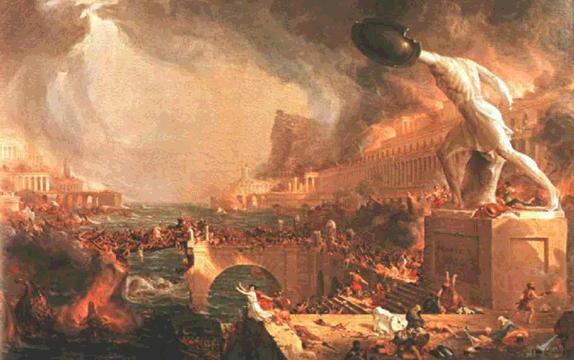
So, how did Paul the Apostle die?
Many historians debate on the exact manner in which Paul the Apostle died. Yet, just as what happened to the other disciples of Christ, it is universally accepted that he died a martyr. Based on historical events, the Romans beheaded him, at the same time that Apostle Peter was crucified upside down. Both apostles caught up in a wave of persecutions on Christians following the great fire of Rome under Emperor Nero.
What is the significance of Emperor Nero in knowing how did Paul the Apostle die?
Nero Claudius Caesar Augustus Germanicus is known as a brutal, irresponsible, and opulent ruler. During his time as the 5th Emperor of the Roman Empire, he persecuted many Christians. He forced them into gladiator matches, where lions ate them. Aside from that, Emperor Nero often lit his garden parties with burning carcasses of Christian human torches. He ruled the Roman Empire around 54-68 AD.
However, the greatest event that surrounded the emperor was the great fire of Rome. This event was also part of the execution of Paul the Apostle. History tells us that Emperor Nero started the great fire in the city of Rome. It began on July 19, 64 AD, which spread for six days, reignited, and burned for three further days. This event made Emperor Nero bypass the senate and rebuild Rome to his liking. He took advantage of the disaster for two things: build his luxurious architecture and persecute Christians.
The Cause of Paul the Apostle’s Death
According to Encyclopedia Britannica, Romans is Paul’s last chronological writing. Paul wrote the book of Romans around 57 AD before his death. Then, it was concluded that the apostle found himself caught up in Rome amid Nero’s persecution following the great fire. Because Paul the Apostle spent most of his time in prison, many Roman officials were familiar with him.
How did Paul the Apostle die? Unlike Apostle Peter, Paul was a Roman citizen. Hence, he was protected from the brutal death of crucifixion. This led to the conclusion that he was executed by beheading.
There is no proof of what happened to Apostle Paul’s body after his death. Yet, based on Albert Barnes’ writing, two possible scenarios happened. First, Lucina, a noblewoman, buried his body on her land beside the Ostian Road. Second, his body was taken to the catacombs below the city along with Apostle Peter’s body.
What Can We Learn From His Death?
It might be difficult for us to unveil the ancient history of how Paul the Apostle died. Yet, we can conclude that he gave his life fulfilling God’s purpose for him, which is to spread the good news. His death gives us a glimpse of how Christians were persecuted for their faith. However, no matter what kind of death Apostle Paul faced, we can safely assume that he prepared himself to meet his fate.
As he wrote in Philippians 1:21-24:
“For to me, to live is Christ and to die is gain. If I am to go on living in the body, this will mean fruitful labor for me. Yet what shall I choose? I do not know! I am torn between the two: I desire to depart and be with Christ, which is better by far; but it is more necessary for you that I remain in the body”.
When Paul wrote this, it wasn’t his final imprisonment in Rome. Yet, he didn’t know that. He didn’t know if they would release or execute him, yet he trusted Jesus Christ to work it out for his deliverance. Paul’s prayer focused on speaking courageously for Jesus Christ even when he stood trial.
The Lesson to Live Like Paul
To those who don’t believe in God, life on earth is all there is. Hence, it is natural for them to strive for this for the world’s values: money, popularity, power, pleasure, and prestige. However, for Apostle Paul, to live meant to develop eternal values and to tell others about Jesus Christ. With his help, we can also see life from an eternal perspective. Apostle Paul’s purpose in life was to speak out boldly for Christ and become more like him. Thus, Paul confidently says that dying would be even better than living. Why? Because in death, he will be free from worldly troubles, and he will see God face to face.
If you’re not ready to die, then you’re not ready to live. We must make certain of our eternal destiny. It is then, we will be free to serve, devoting our lives to what counts, without fear of death.
Impact of Apostle Paul and His Death
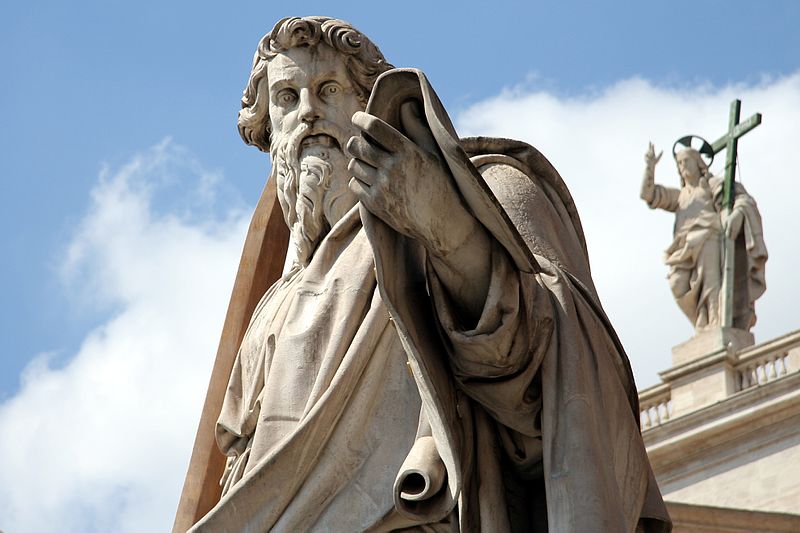
After asking the question of how did Paul the Apostle die, we’re probably wondering what is the impact of his death.
Considered as one of the most important spiritual figures, Apostle Paul has played a huge significance in the history of Christianity. He went on three missionary journeys that carried and spread the gospel to different parts of the ancient world. Despite the trials and tribulations endured by Paul during his lifetime, he accomplished the mission God sent him to do. His epistles (letters) created an enormous influence on Christian theology. It gives us a deep understanding of the relationship between God the Father, Jesus Christ, and the mystical human relationship with the divine.
One of his major contributions to Christianity is the “justification by faith”, also described as “faith alone”. The concept of faith rather than good works became a prominent theme during the time of Martin Luther. Thus, it led to the formation of the protestant reformation and the break with the Roman Catholic Church. Paul’s book of Romans fueled and influenced Martin Luther’s thinking.
Apostle Paul also played a vital role in the development of Christianity away from its Jewish parent. Throughout his lifetime, Paul’s missions were largely focused on the conversion of Gentiles, in which Christianity then became a Gentile religion. All of his writings and preaching encouraged the ancient church and taught them how to live a God-centered life in a pagan-centered world. Also, his writings were written to address problematic issues that arose in the first century that were then later dealt with. It led the churches to survive, thrive, and grow for future generations. Like the other disciples of Jesus, Paul’s life played a crucial significance in the foundation of the Christian faith.
